College students who protested and those who didn't share in disappointment at response from schools
After a semester marked by sweeping protests on college campuses across the nation that raised questions about freedom of speech, how universities confront allegations of antisemitism and Islamophobia and how they invest, some students who experienced the demonstrations say they have been left disappointed by how their universities responded.
Anne-Marie Jardine, 22, who graduated from the University of Texas at Austin this year, said that while she was “really proud of my class and everyone who came out,” she was left feeling that her school “really doesn’t care” about its students.
“If you want support, if you want to feel like your voice matters, if you want to feel safe, that is not the place,” Jardine said. “I absolutely hate that school.”Jardine was one of nearly 140 people arrested during two campus protests in late April. She said she was participating in what she described as an “incredibly peaceful” protest on April 24 when law enforcement officers arrived to arrest them.
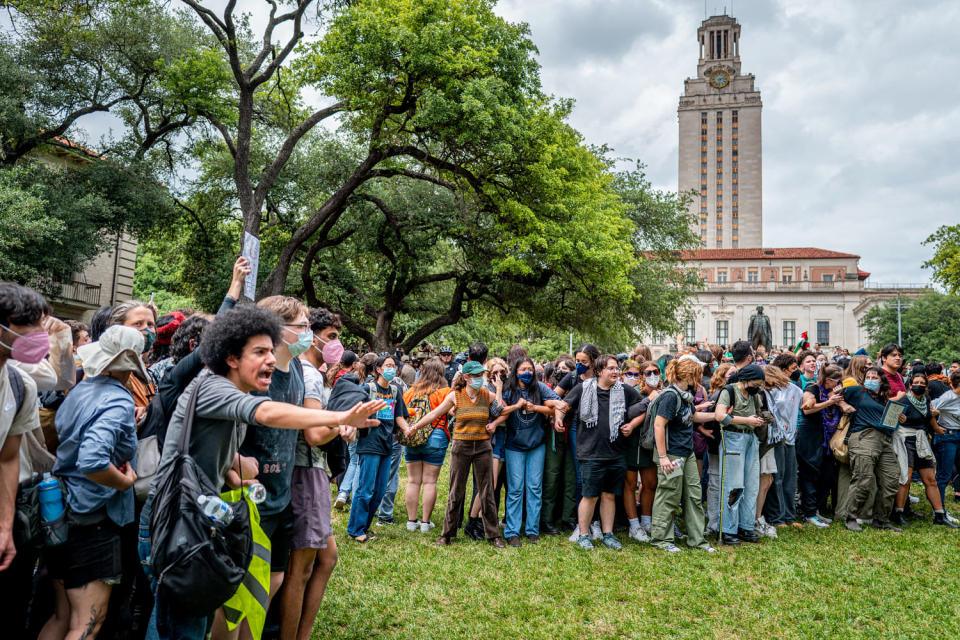
She said she was grabbed by several officers, thrown to the ground and dragged by her hair and arm, leaving her with cuts, bruises and a sprained neck, arm and lower back.“We had no idea that we were going to be met with this much violence,” Jardine said.
The university’s president on April 24 called it a “challenging day for many.”
“The protesters tried to deliver on their stated intent to occupy campus,” Jay Hartzell said. “People not affiliated with UT joined them, and many ignored University officials’ continual pleas for restraint and to immediately disperse. The University did as we said we would do in the face of prohibited actions.”
Arwyn Heilrayne, 19, a freshman at the University of Texas at Austin who also was arrested, said the school’s response to the students was enraging.
“I feel like I’m almost mourning a piece of a legacy that I thought I was stepping into,” the third-generation University of Texas student said.
“How dare they do this to my peers? The militarization of our campus makes me deeply angry,” she said.
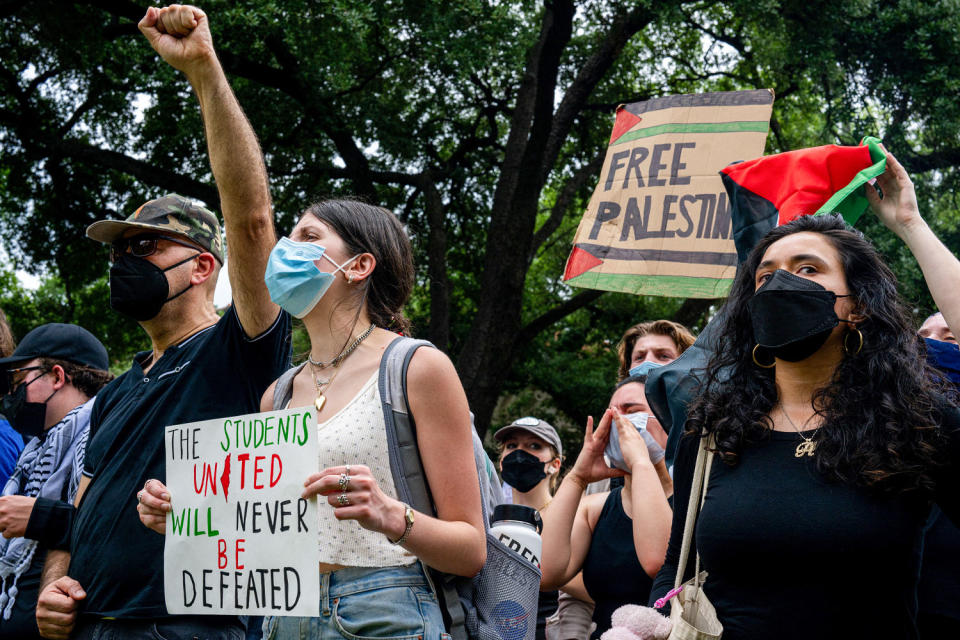
Heilrayne said she plans to take some time this summer to “heal physically and psychologically” after the traumatic experience of being arrested by police during a protest.Both Jardine and Heilrayne were arrested on allegations of trespassing. The charges were later dropped. The University of Texas at Austin did not respond to a request for comment about the allegations.
Since mid-April, there have been dozens of protests over Israel’s war in Gaza at universities and colleges nationwide. The protests, which included confrontations between students and clashes with police at some of those campuses, have led to nearly 3,000 arrests, according to an NBC News tally. While many universities have defended the decision to call in law enforcement, the intensity of the police response in some instances has drawn harsh criticism from protesters, activists and their allies, particularly after police were called in to clear a building at Columbia University that had been occupied by protesters.
Universities have also drawn the ire of both Jewish and Muslim students who believe their warnings about rises in antisemitism and Islamophobia on campus since the start of the Israel-Hamas war on Oct. 7 have gone unaddressed.
Jacob Schmeltz, who graduated from Columbia this month, said he believed Columbia and other universities were supposed to be places that foster rational conversations around the most contentious topics and encourage dialogue “even across really painful and divisive issues.”
“Unfortunately, I have been thinking a lot about how Columbia has specifically failed this test in this regard,” said Schmeltz, 22, who is the vice president of the Jewish on Campus Student Union.
He said he was relieved to be graduating and putting the last semester behind him.
“The trust between students and the university, the trust between peers is completely broken,” he said. “Columbia has a lot of work to do over the summer to try and rebuild this trust.”
Columbia did not respond to a request for comment.
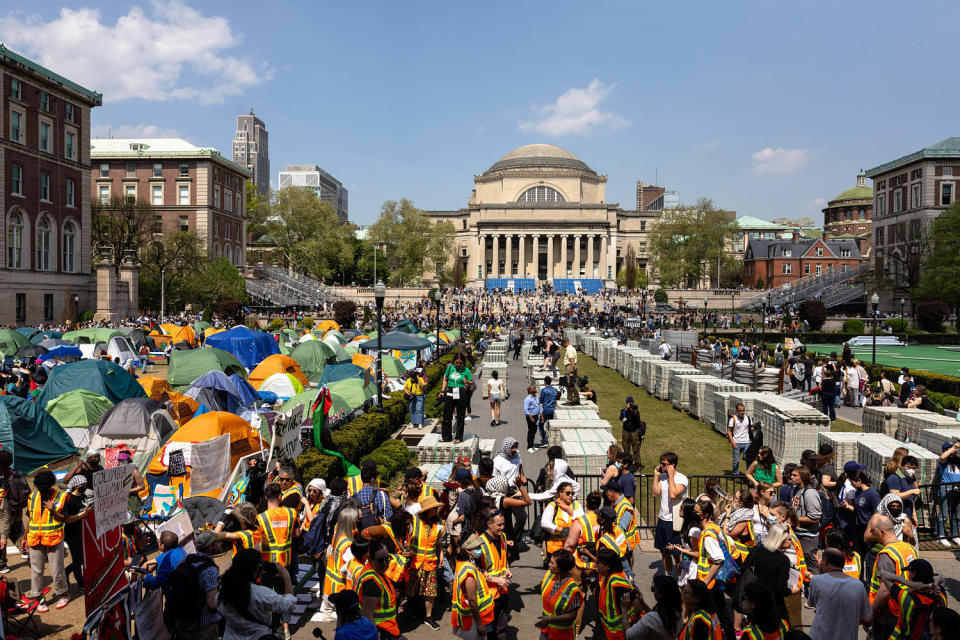
Eli Hiekali, who just graduated from the University of Southern California’s Marshall School of Business last week, said he ended the academic year stunned by what he saw on campus. He felt antisemitism overshadowed many of his interactions with protesters and said he was frustrated by the university administration. He felt they let the encampment remain on campus too long and did not adequately address concerns of antisemitism.“There is all this hate and hate doesn’t solve anything. Hopefully better days are ahead,” Hiekali, 22, said.
Jewish students who oppose Israel’s actions have also played a central role in the pro-Palestinian protests, with campus groups including Jewish Voice for Peace organizing Passover Seders at encampments and other actions.
Student protesters also criticized their schools’ handling of allegations of hate on campus.
Danica Gonzalez, a rising sophomore at the University of Southern California who participated in the protests, said she believed counterprotesters, some of whom became violent and started fights, were not scrutinized in the same way as pro-Palestinian groups.
“We’re the ones who get the cops called on us, we’re the ones who get the rubber bullets, we’re the ones who get arrested,” she said.
USC said in a statement to NBC News on Friday that “the safety and security of our entire university community has been — and remains — our top priority” and that it had taken many measures to increase safety on campus since Oct. 7.
The school also said that while it values freedom of speech, “we stand firmly against any language that calls for violence against any religious or other group. Hate speech is antithetical to our values and we stand firmly against antisemitism, Islamophobia, racism and xenophobia.”
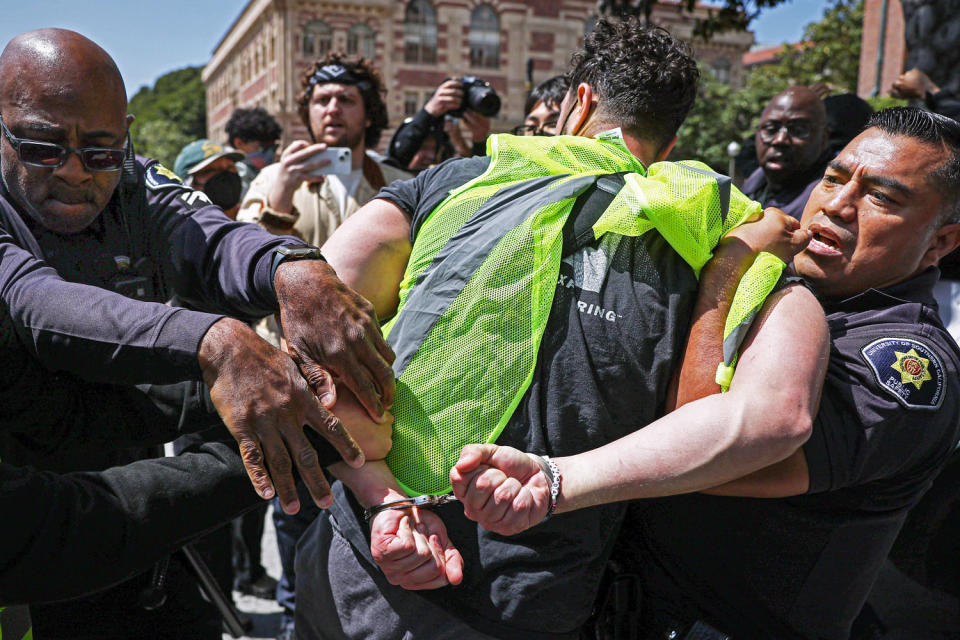
Sinq, 18, a rising sophomore at Pomona College in California, called out what she said was a disparity with how the school addressed claims of Islamophobia compared to claims of antisemitism.“I would say there were Muslim, Arab and Palestinian students who did not receive the same type of care and commitment to their well-being as their Jewish counterparts,” she said. “The focus was always making sure Jewish students felt safe on campus, never about Muslim students. There was a huge disparity.”
Pomona College responded to NBC News with a statement saying in part, "Pomona College is committed to confronting all forms of shared ancestry discrimination in a sustained and comprehensive manner. We will continue to enforce our policies, promote safety and actively challenge these destructive forms of hate."
Dozens of encampments, many of which sprang up at campuses across the country last month as protests intensified, have been cleared this month ahead of graduation season. With their removal, some schools have reported reaching agreements with protesters on lists of demands. Many protesters had called on their schools to divest from financial support of Israel.
Harvard University announced this week that it would meet with protesters to begin to discuss disclosure and divestment. It said would also hold reinstatement proceedings for suspended students.
At the University of California, Berkeley, protesters began dismantling their encampment Tuesday after the school agreed to support and initiate a “rigorous examination” of the school’s investments. The school chancellor would also issue a public statement calling for a cease-fire.
No school has fully agreed to divestment thus far.
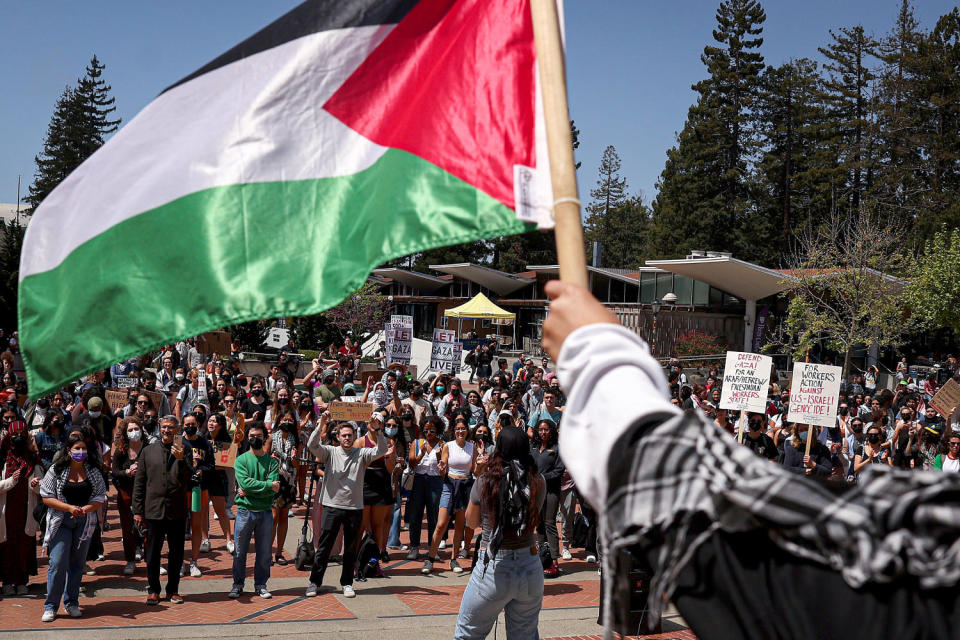
Gonzalez, however, said she was left frustrated about the growing rift between students and the USC administration over transparency regarding its financial investments.Sinq, who asked that her last name not be used out of safety and retaliation concerns, said she enrolled at the school because of its “commitment to social justice and intellectual passions and working towards a radically imagined world.”
“Now I realize I go to an institution that is upholding the status quo and will do everything in its power to silence and demonize students who are fighting for a better world.”
Sinq was among the protesters who camped out at the school’s graduation stage from Monday through Saturday of last week.
She said students will continue to protest through the summer in the hope of getting the university to address their concerns.
“I will continue in this deep commitment to liberation and divestment until the administration has no choice [but] to listen. I am committed to divestment even if it takes four years,” she said.
Barnard College graduate Noa Fay, who took part in Jewish activism on campus, said tension that was present during the school year also was inescapable at graduation. But she’s hopeful that her school community will find a way to move past it.
“This is not how we as a Barnard sisterhood community behave towards each other,” Fay, 23, said. “Barnard is going through some sort of tumultuous time.”
This article was originally published on NBCNews.com

